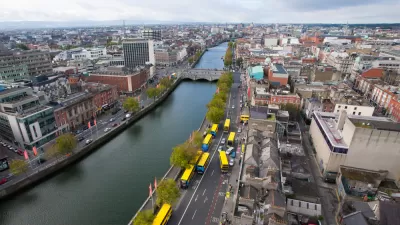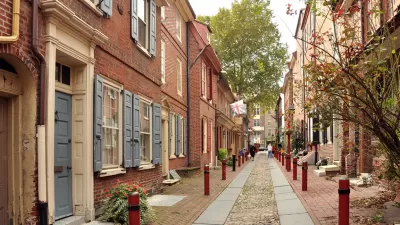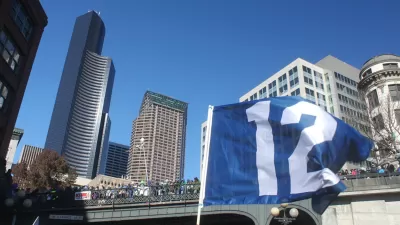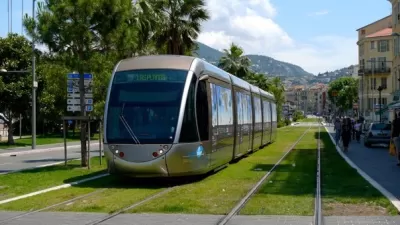urbanism without effort

A Twitter Feed that Sings About Placemaking
"My twitter stream is alive with the sound of placemaking," writes Chuck Wolfe. While preparing for this week's Placemaking Week in Vancouver, he explains the importance of PPS-led programming and hopes for various panels, proceedings and events.
Visioning Edges in Cities, and the Spaces Beyond
In an inspirational essay about the undeveloped boundaries of the public domain (such as street-ends), Chuck Wolfe urges innovation in city spaces where we "blend the familiar with the edge of the unknown."
Using Urban Observation to 'Ghost-Bust' Cities
Chuck Wolfe champions urban observation, emphasizing "ghosts" that are important to the authenticity of today's urban change, like oral histories among indigenous peoples passing on cultural traditions from one generation to the next.

Reading Cities Cover to Cover, and Why
Chuck Wolfe underscores the importance of a holistic view of urban places, referencing themes of common experience, aesthetics, feelings of happiness, safety, or security—a basic narrative of the city that often goes beyond first impressions.
The Human Dimension of the Physical City
In his latest two contributions from the south of France, Chuck Wolfe reminds urbanists of the backdrop of the human dimension of affinity, conversation and daily rituals that stand behind the physical, human scale.
Recalling Our Basic Pride of Place
In the fifth of his "place-decoding" series from France, Chuck Wolfe recalls how we carry with us the ability to mine pride from place, even in places that are, perhaps, least expected to shine.
Exploring the 'Finesse of the Avenue'
In his fourth "place-decoding" essay from France, Chuck Wolfe illustrates how a traditional placemaking intervention is especially powerful when underlying urban fundamentals align.
The Look and Feel of 'Inherently Urban'
Greek orators, current solution-based efforts, and 25 photographs remind us of the central role of human opportunity in the urban environment.
The Importance of Inter-Urban Walkability
In his third "place-decoding" essay from France, Chuck Wolfe recalls all that we can learn from walking between settled places.
The Option of Sensing the City
In his second Huffington Post article on "place-decoding," Chuck Wolfe argues for considered attention to enhancing people's abilities to discern the city around them.
Learning to 'Place-Decode' the Elements of Urbanism
Chuck Wolfe champions the role of France's attachment to place as a laboratory for decoding the essential elements of urbanism.
Interpreting the 'Timeless and Time-Bound' in Cities
In his latest essay on interpretation of the urban environment, Chuck Wolfe suggests that if we take away context clues cities become matrices -- with blank cells to complete -- where each of us personalizes how space meets time.

Revisiting the Common Sense Elements of City Life
Chuck Wolfe revisits five instances of how we can learn from the urbanism we already have.

The Underlying Patterns of Urban Street Design
Based on empirical study, J. Alexander Maxwell and fellow University of Strathclyde researchers, in collaboration with Chuck Wolfe, argue for recalling historic patterns of pedestrian city settings in contemporary urban design and policies.

Placemaking Lessons Learned from Seattle's Super Bowl Parade
Last Wednesday, an estimated 700,000—more than the city's population of 635,000—welcomed the Seahawks home, without major incident. Writing in The Atlantic Cities, Chuck Wolfe describes five lessons for placemaking through words and photographs.
The Mythical Search for 'Congruity' in the City
In the eighth installment of the Urban Juxtapositions series profiled in Planetizen on January 16, Chuck Wolfe asks if we are using the right language when it comes to densifying urban spaces.

Three Everyday Ways to Inspire Urban Change
Chuck Wolfe suggests three, perhaps non-traditional ideas for how to inspire acceptance of change in our cities through accessible experiences.
Urban Ruins and the High Line Next Door
Chuck Wolfe suggests we all have the inspiration within us to envision how to remake our cities--from the conjecture of a Seattle restauranteur about Seattle's monorail to neighborhood examples of "we used this before, let's use it again".
Urban Design for Planners 1: Software Tools
This six-course series explores essential urban design concepts using open source software and equips planners with the tools they need to participate fully in the urban design process.
Planning for Universal Design
Learn the tools for implementing Universal Design in planning regulations.
Heyer Gruel & Associates PA
JM Goldson LLC
Custer County Colorado
City of Camden Redevelopment Agency
City of Astoria
Transportation Research & Education Center (TREC) at Portland State University
Jefferson Parish Government
Camden Redevelopment Agency
City of Claremont


































